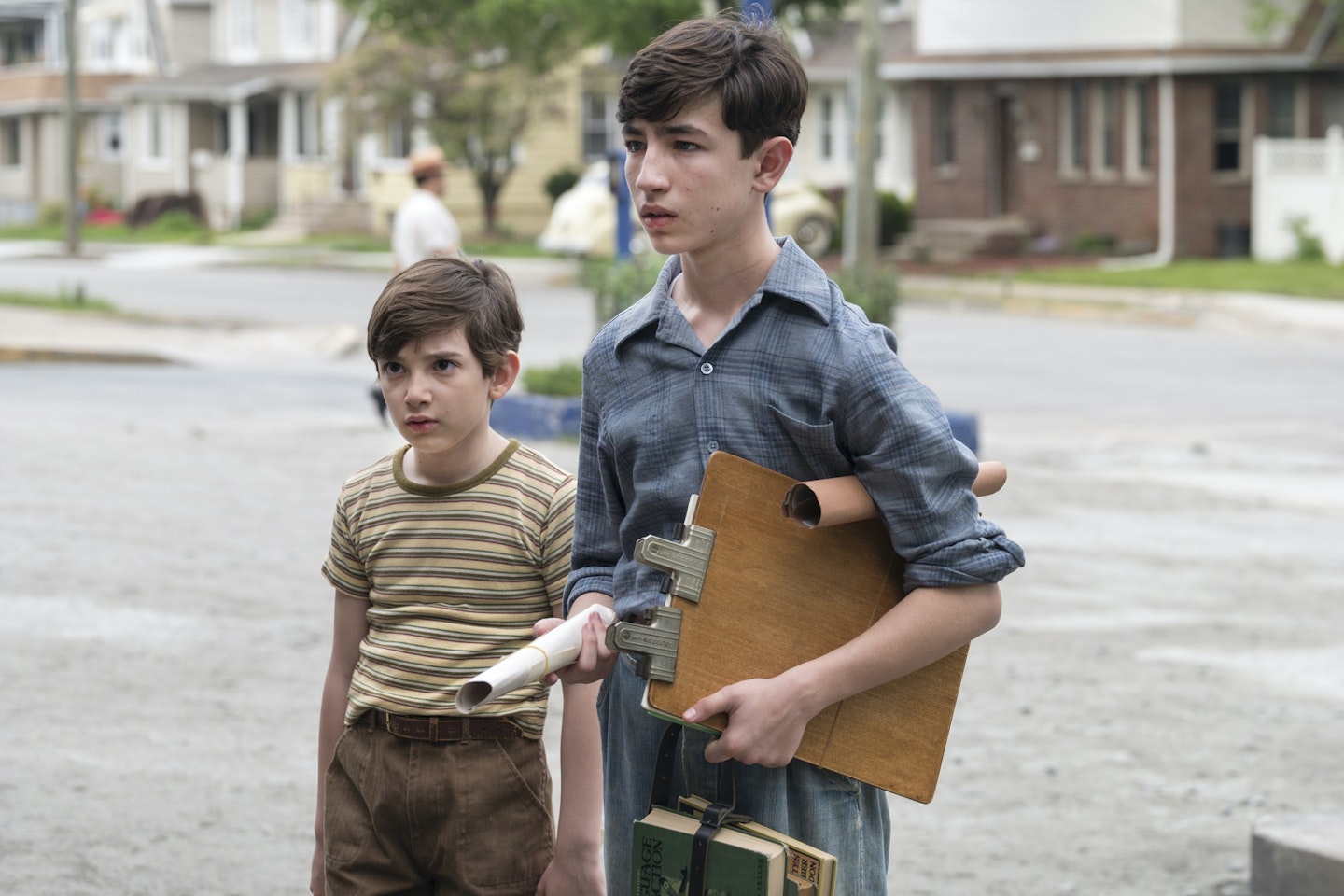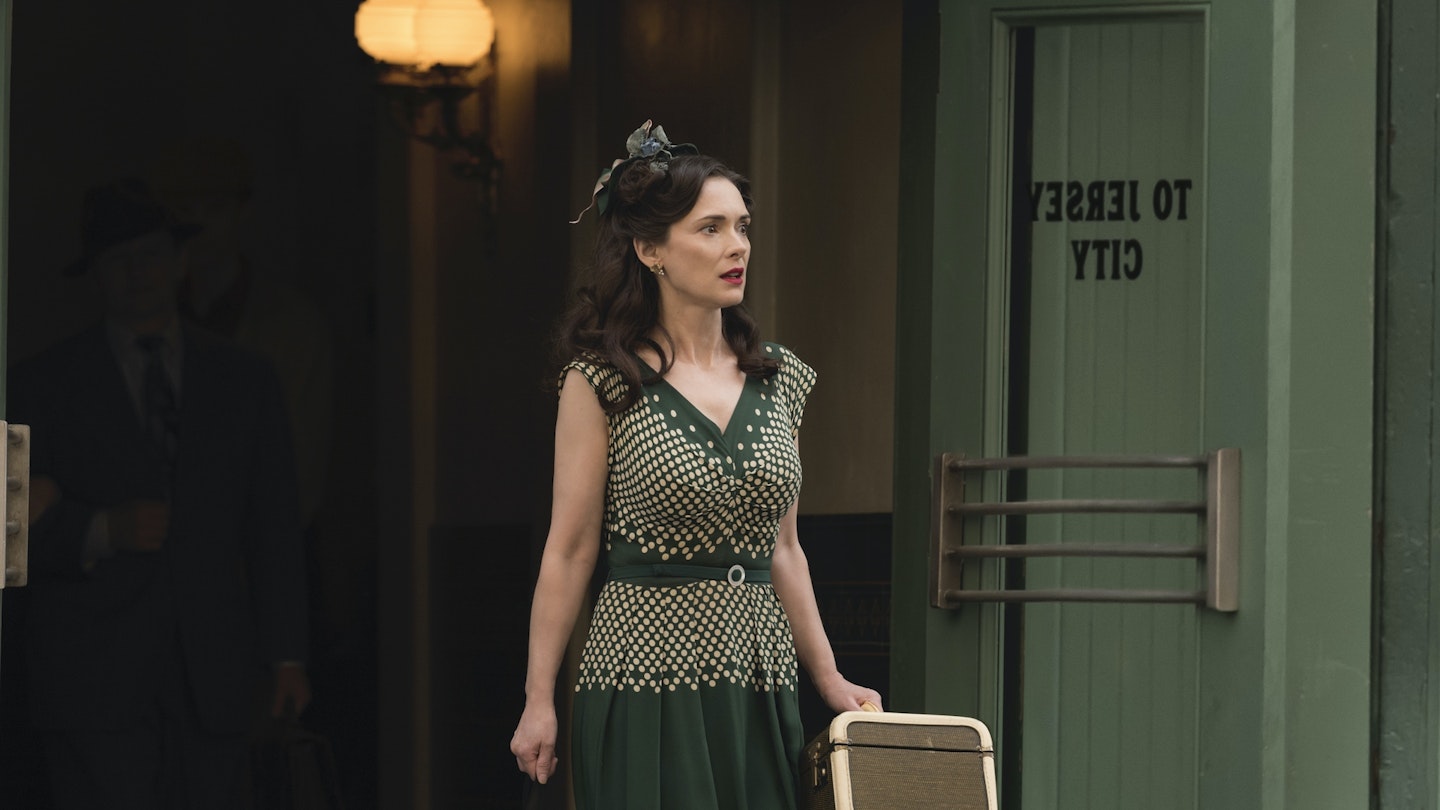US TV is full of alt-timelines these days. Following on from The Handmaid’s Tale and Hunters, The Plot Against America, adapted from Philip Roth’s 2004 novel by The Wire masterminds David Simon and Ed Burns, imagines a future where Charles Lindbergh, American flying ace and Nazi sympathiser, becomes the POTUS. The result isn’t high on dramatic incident and shocking twists, but its six-episode run is completely absorbing, building a tangible sense of mounting anxieties and helplessness among characters in an increasingly rancid country.
The plot of The Plot Against America is spun through three criss-crossing narratives. The dominant storyline sees the effect of Lindbergh’s ascendancy on the Levins, a Jewish New Jersey family. Dad Herman (Morgan Spector) is a politically driven insurance man concerned with the popularity (and populism) of the anti-Semitic Lindbergh (“An airplane pilot with opinions”), while Bess (a superb Zoe Kazan) is a stay-at-home mum who just wants to do the best for her two children — Sandy (Caleb Malis), a teen with a talent for drawing and admiration for Lindbergh, and Phillip (Azhy Robertson),
The show has superb production values but never at the expense of substance.
a ten-year old with a passion for stamps and a reluctant friendship with kid-next-door Seldon (Jacob Laval). In deft, incremental strokes, Simon and Burns build up the effect of insidious politicking on everyday lives; what starts as dirty looks from neighbours soon develops into out-and- out racial slurs and being chucked out of a hotel in Washington. When the rioting starts in episode five, the accumulation and escalation of micro aggressions make it very clear how we got there.

The second narrative strand follows Bess’ spinster sister Evelyn (Winona Ryder) and her growing relationship with Rabbi Lionel Bengelsdorf (John Turturro), a leader in the Jewish community and a supporter of Lindbergh. When the President-elect invites Bengelsdorf to become his religious advisor and asks him to lead ‘Just Folks’, an assimilation programme that sends inner-city teens from minority families to spend time on rural farms to learn real American values, it’s a slippery road for the Rabbi and Evelyn, who get caught up in Lindbergh’s hyperbole, leading all the way to a gala celebrating Nazism. The relationship lobs a grenade into the Levin family — Bengelsdorf is accused of “koshering Lindbergh”, making it palatable for Americans to vote for him without feeling anti-Semitic — and the fallout is irrevocable.
The third thread featuring Herman’s wayward nephew Alvin is perhaps the least engrossing. Played with energy and attitude by Anthony Boyle, Alvin’s journey takes him from petty crime in New Jersey to fighting the fight for the Canadian army in a Blitz-torn Blighty (“I want to kill Nazis”). Alvin’s no-nonsense man-of-action response to the current climate stands in sharp contrast to Herman’s intellectual response. Other fillips of plot come out of young Phillip’s friendship, firstly with local delinquent Earl (Graydon Yosowitz) and most impactfully with Seldon. The latter’s storyline — the weird kid next door with a sick father — initially feels inconsequential but delivers huge emotional wallop in the final episode.
Directed by Minkie Spiro (Better Call Saul, Fosse/Verdon) and Thomas Schlamme (The West Wing , The Americans), the show has superb production values but never at the expense of substance: powerful imagery — be it cleaning swastikas from gravestones or a pile of shoes that is a ghostly reminder of the Holocaust — abounds. The show is also clear-eyed about the repetitive nature of political rhetoric (Lindbergh’s 41-word takedown of Roosevelt is always the same), while it employs a great use of ’40s media, with cinema newsreel acting as a 24-hour news cycle in the characters’ lives.
The novel was written 16 years ago, and while Simon and Burns make it live as compelling drama in its own right, the parallels with Trump’s America are impossible to ignore; celebrity President, ‘America first’ dogma, dodgy international relationships, a discontented populace. But even since it has aired in the US in January, it has become even more relevant, the distrust of police and the breaking up of peaceful political rallies hitting even harder. There will be cosier ways to spend your summer TV nights — how many times can you watch Gavin & Stacey? — but few that are as compelling.
